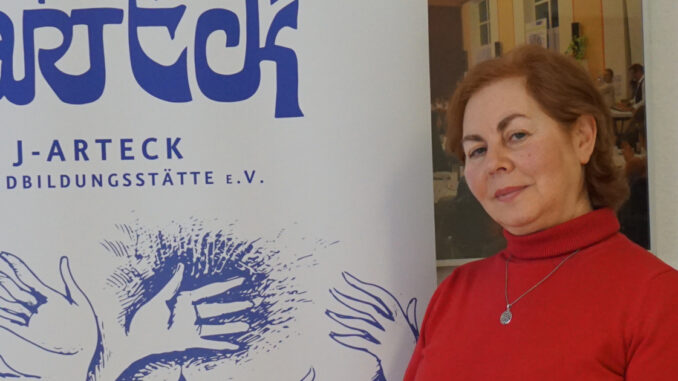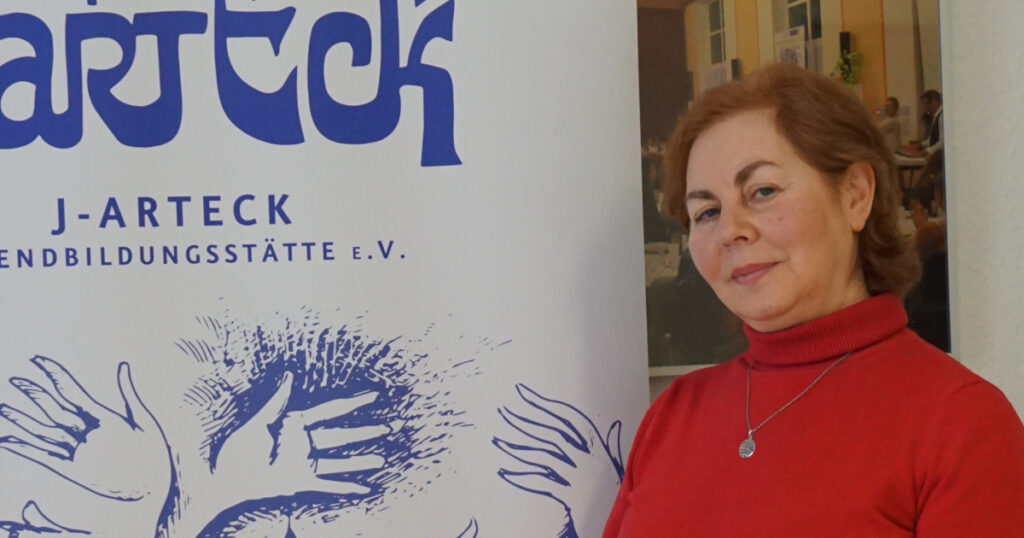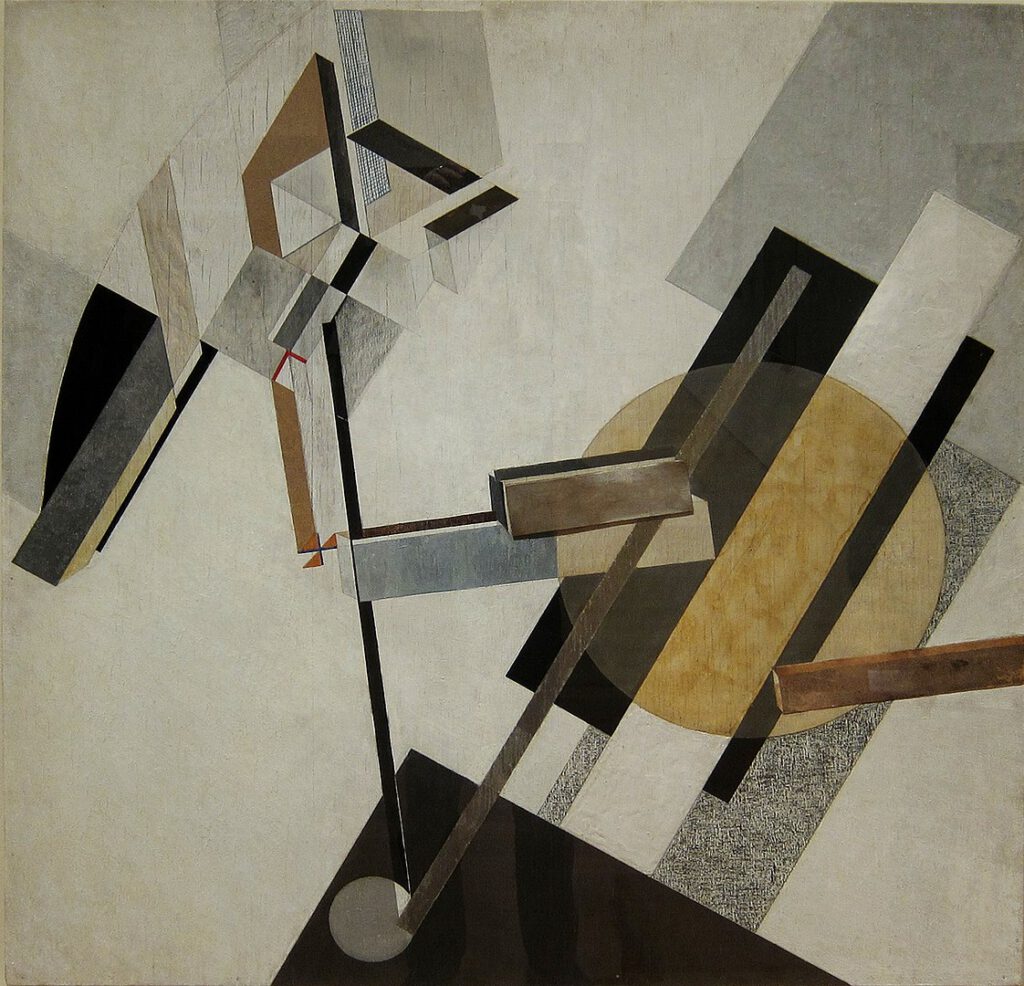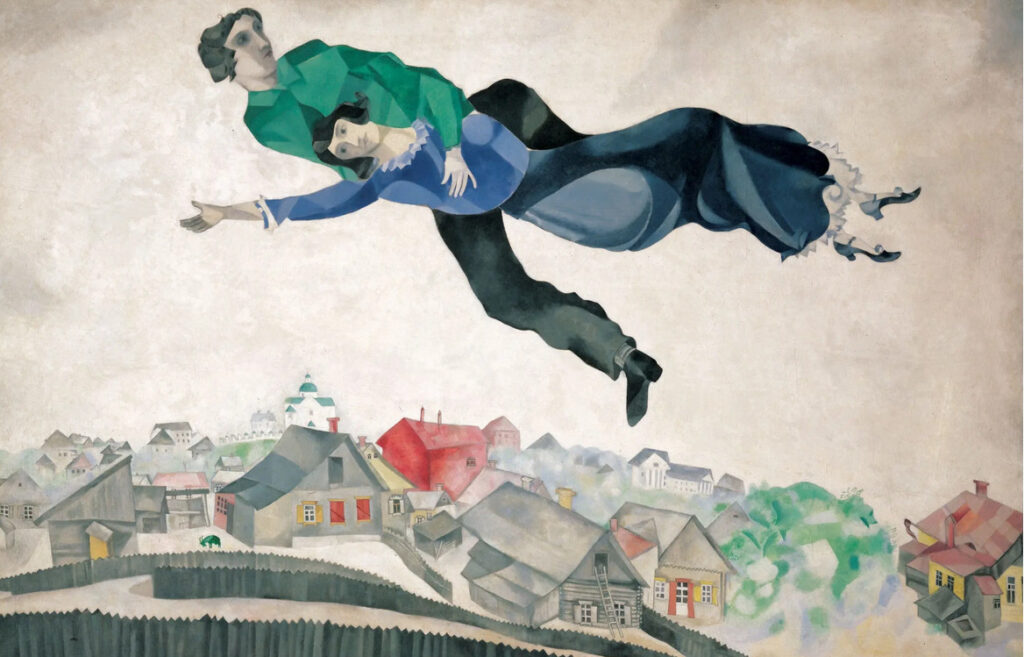
Ella Nilova runs the Jewish youth education center J-ArtEck in Berlin’s Janusz Korczak House. In the midst of the Ukraine War, she organizes youth exchange programs. Important to her work is a worldwide Jewish-Ukrainian art movement from the 20th century: the Culture League.

It is March 6. I am walking through cold and moist Berlin air. In a backyard next to the Red City Hall is the Janusz Korczak House. It is run by Ella Nilova. Through her youth education center J-ArtEck, she usually brings Jewish children from Israel, Ukraine, Russia, but also from other Eastern European countries to Berlin – even in times of war. The project is funded by the Foundation Remembrance, Responsibility and Future (EVZ) and the German Federal Foreign Office as part of the „MEET UP! Youth for Partnership“ program.
But Nilova’s commitment is currently facing a problem. „The youth hostels are fully booked up to the end 2024,“ explains the educator who has Russian-Ukrainian roots herself. „And apartments are now being built where our 10-day summer camp used to be held.“
Nevertheless, 60 young people from Germany, Israel, Lithuania and Ukraine met in Berlin in the summer of 2022. Yet, it is not only the traces of the Shoah that Ella Nilova imparts in her youth work.
Children in Berlin explore the Jewish-Ukrainian Culture League
Nilova’s goal is to strengthen a self-confident Jewish identity among the children. One way to achieve this is through education about the Cultural League (Kultur-Lige), which is unknown to many today. The League was founded in 1918 in Kiev by Jewish avant-gardists with the aim of bringing Jewish education, Yiddish language and culture to the world. In December 1920, the League was nationalized by the Communists. Many artists went into exile. Follow-up organizations were formed in Moscow, Warsaw, Paris, Vilnius, Bucharest, New York, Chicago and in many other places. Marc Chagall and El Lissitzky belonged to the League. Berlin also became a center of Yiddish literature, until the Nazis put an end to that. In 1952, surviving League founders fell victim to Stalinist anti-Semitism. Along with other Jewish writers and intellectuals, they were executed on the pretext of high treason in „the night of the murdered poets.“
The young people in the J-ArtEck learn about the Culture League and other legacies in an creative way. „Many kids want to come back,“ Nilova says. That’s true for the Ukrainian youths, too, she adds. „Our program is so rich that the kids forget the war to some extent.“


